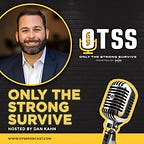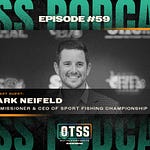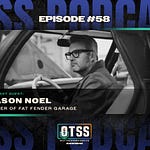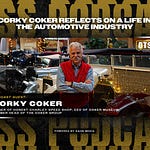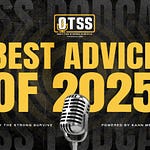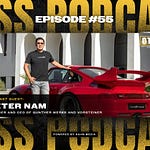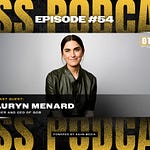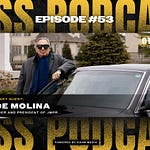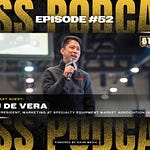EarthCruiser CEO Lance Gillies wanted to travel deeper and further into his home country of Australia in more comfort than a typical overland vehicle could provide. With few options available, Lance decided to create his own overlanding platform. The capabilities of it would go far beyond the typical Hilux or Land Cruiser equipped with a rooftop tent and other accoutrements. Instead, Lance envisioned a vehicle that would be fully self-contained, highly-capable and comfortable enough to live in for months at a time. In 2008, EarthCruiser was founded, and Lance began to sell his version of the ultimate overlanding vehicle to others.
Three years later, Lance expanded EarthCruiser to America. While overlanding is now familiar to many, that wasn’t exactly the case in 2011. The U.S. was also still in a hangover from a major recession a couple of years earlier. Trying to sell an extremely specialized vehicle with a rather hefty price tag while launching a relatively unknown brand wouldn’t be easy. However, Lance preserved and, through it all, learned valuable and hard-fought lessons in entrepreneurship. In this episode of “Only The Strong Survive,” host Dan Kahn discusses with Lance what he learned from his unique journey with the launch of EarthCruiser. Here are our top five takeaways:
Launching a business during economic downturns is possible.
Picking the right location for a startup absolutely matters.
Scaling is complex for brands of any size.
Constantly learning and adapting is critical to success.
True leaders value their employees.
Starting a Brand During a Recession Can Actually Work
When Lance originally started EarthCruiser in 2008, the world was in the midst of a recession. The impact of that downturn was lessened in Australia but still felt. Things weren’t much better when Lance brought the company to America in 2011. Launching a brand in economically rocky times might seem like a bad idea, but it is possible. And it can bring some unique advantages when finding vendors and employees.
“Because what we were doing was very unique and because things weren’t going well financially around the world, although Australia wasn’t as badly hit as quickly as the U.S., but it certainly caught up, people were hungry for work,” said Lance. “So once upon a time, they might have turned you away, but this time, they will take a risk on it because they might as well. It actually worked in our favor.”
Location Matters for Startups
Some look for the most affordable location when starting a brand. Cost can certainly be a factor, but it shouldn’t be the only consideration. Picking the right location when launching your brand involves more than convenience or lower rents. Deciding on Bend, Oregon, for EarthCruiser’s North American headquarters allowed Lance to tap into eager local talent and shops, along with other unexpected benefits.
“I was so clueless initially about building a vehicle for the cold. Going somewhere cold made no sense to someone like me,” said Lance. “From a company perspective and building vehicles perspective, Bend has been fantastic. It is one thing to go play in the cold, but it is another thing to build vehicles that can maintain all of their functionality in absolute extreme weather conditions. From a vehicle’s builder perspective, Bend couldn’t be more ideal. It gets a terrific summer, but it gets a really good winter as well. That lets us fulfill our promise to our customers that wherever they take their vehicles, they are going to be okay.”
Scaling Requires Trusting Your Instincts
Scaling can be extremely difficult for any startup. Expand too fast, and one can be left with excess inventory and employees. Go too slow, and the opposite is true, resulting in not enough product, long lead times and angry customers. Either one can sink a business regardless of size. Lance faced the same dilemma when growing EarthCruiser but ultimately trusted his instincts.
“It is a scary moment because once you make that commitment, you are in,” said Lance. “I went to one of the very first Overland Expos in Arizona. I don’t even know how I heard about it. If I remember correctly, there were 12 or 13 vendors in total. I looked around at the stuff that was there and thought that this was Australia 20-plus years ago. So, if this is that little twinkling light, this could be interesting. There is all this open space in the U.S., so it isn’t like there isn’t a place to take them. You have South America on one end and Canada on the other. You have all these places to go, so there might be something to this.”
Constantly Learning is Key
Traveling around the world is both a passion and a business for Lance. However, he doesn’t just travel to say he has been to places. Encountering different people, cultures and climates allows Lance to learn from them. That willingness to constantly learn and put that knowledge back into EarthCruiser has been key to its success. Without it, the vehicles that EarthCruiser builds would never evolve.
“We can learn a lot from people who not just travel, not just survive, but absolutely thrive in some of the most inhospitable places in the world. To them, it is just their home,” says Lance. “If we give ourselves a chance to think about how they do that, we can learn a lot without just consuming more. They don’t have more to consume; they have what they have. They know how to use it well and not be a detriment. They can live within their means, and I don’t just mean their financial means but within their environmental means.”
Leaders Eat Last
Some think that building a new brand only requires a lot of hard work and some luck. However, there is a lot more to it than that. Any brand needs effective leadership to be successful. Leadership can take many different forms, but for Lance, it is about putting your employees first. After all, they are his most important assets.
“I really believe a leader should always eat last,” says Lance. “If you own a company, people are trusting you to make sure they get paid on Friday, you have customers who have put their faith in you and there are times you don’t know what the right answer is. Sometimes, eating last is the best thing you can do simply because you get the chance to observe what is going on. It is not leading from behind; it is asking and observing if your people are going in the right direction.”
Click on the play icon above to hear the full discussion between Dan and Lance.


